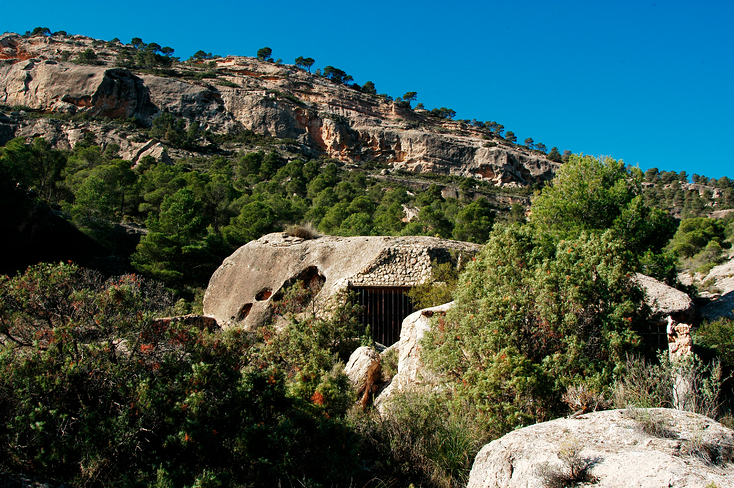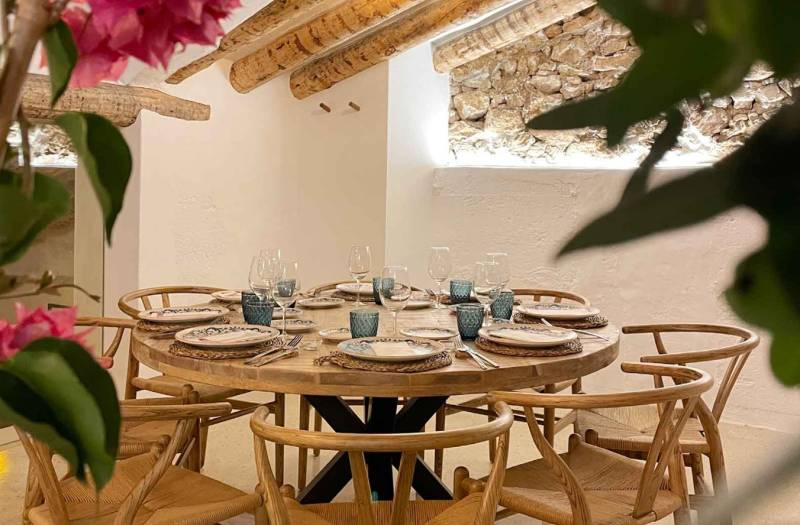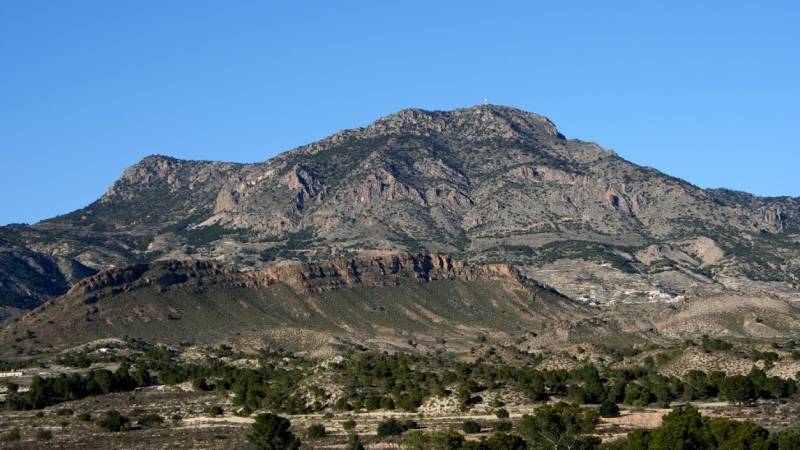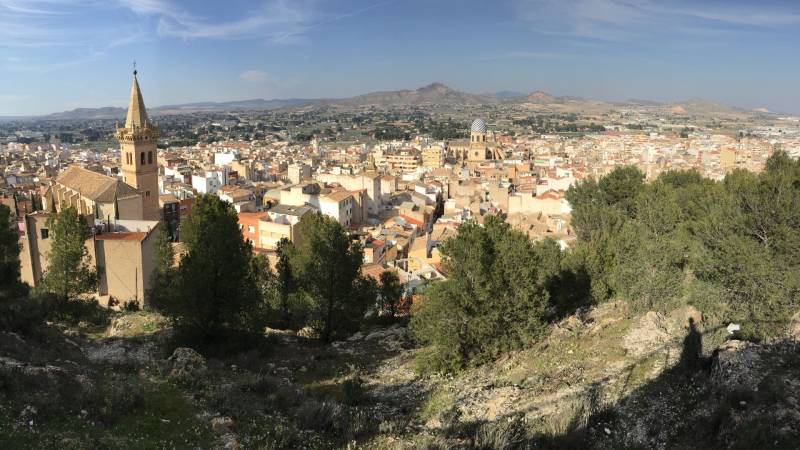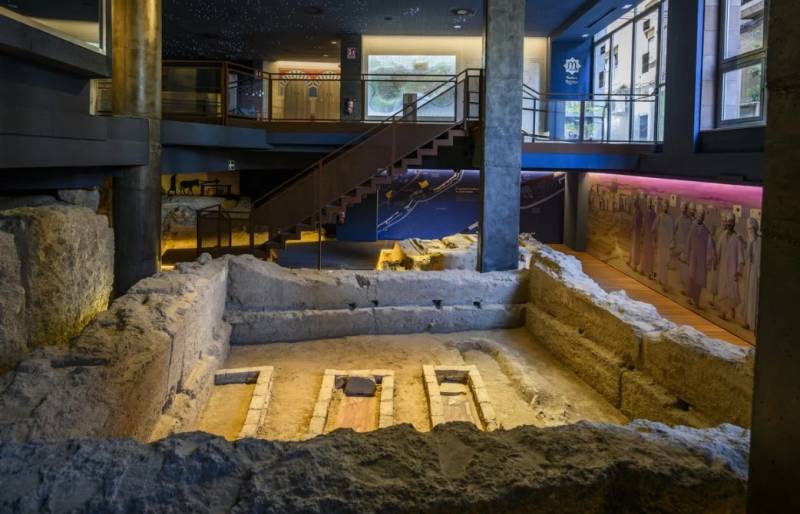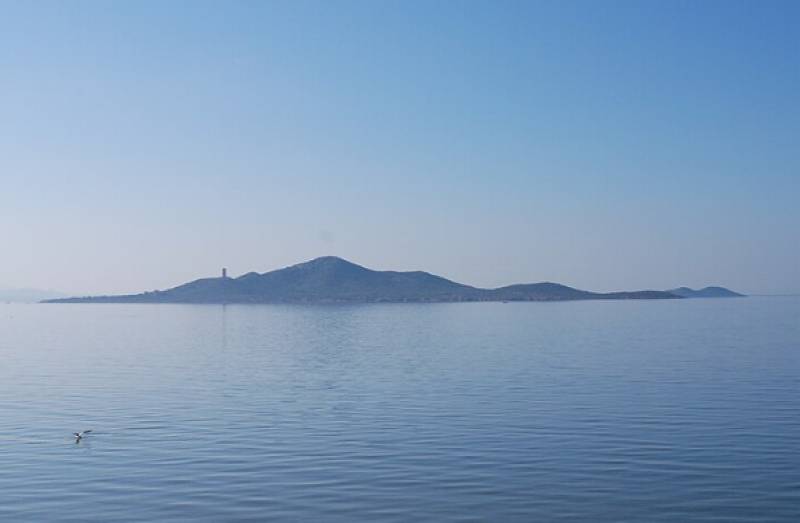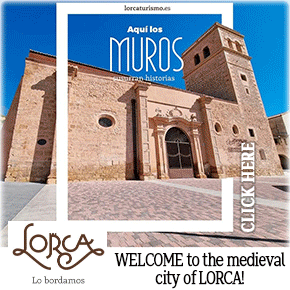- Region
- Vega baja
- Marina Alta
- Marina Baixa
- Alicante
- Baix Vinalopo
- Alto & Mitja Vinalopo
-
ALL TOWNS
- ALICANTE TOWNS
- Albatera
- Alfaz Del Pi
- Alicante City
- Alcoy
- Almoradi
- Benitatxell
- Bigastro
- Benferri
- Benidorm
- Calosa de Segura
- Calpe
- Catral
- Costa Blanca
- Cox
- Daya Vieja
- Denia
- Elche
- Elda
- Granja de Rocamora
- Guardamar del Segura
- Jacarilla
- Los Montesinos
- Orihuela
- Pedreguer
- Pilar de Horadada
- Playa Flamenca
- Quesada
- Rafal
- Redovan
- Rojales
- San Isidro
- Torrevieja
- Comunidad Valenciana
Spectacular landscapes unique to the Region of Murcia
Just a few of the natural gems of Murcia, put them on your “must visit” list!
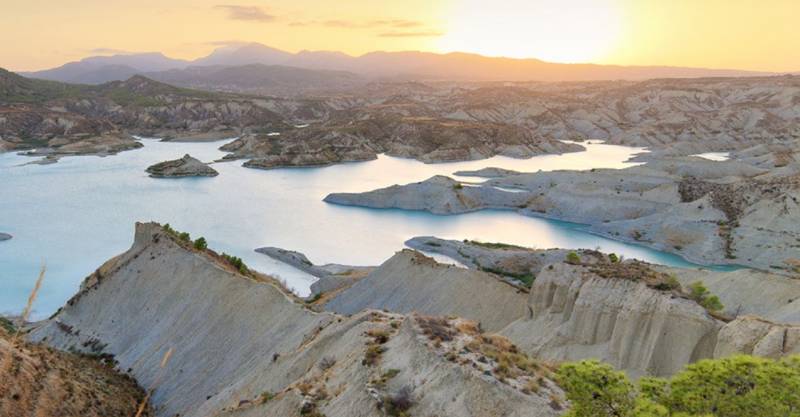
Most visitors know the Region of Murcia as a beach holiday destination, but in fact the variety of landscapes and spectacular views is far wider and it is worth getting to know a few of them. The chances are that once you start exploring you'll find it hard to stop!
Salto del Usero
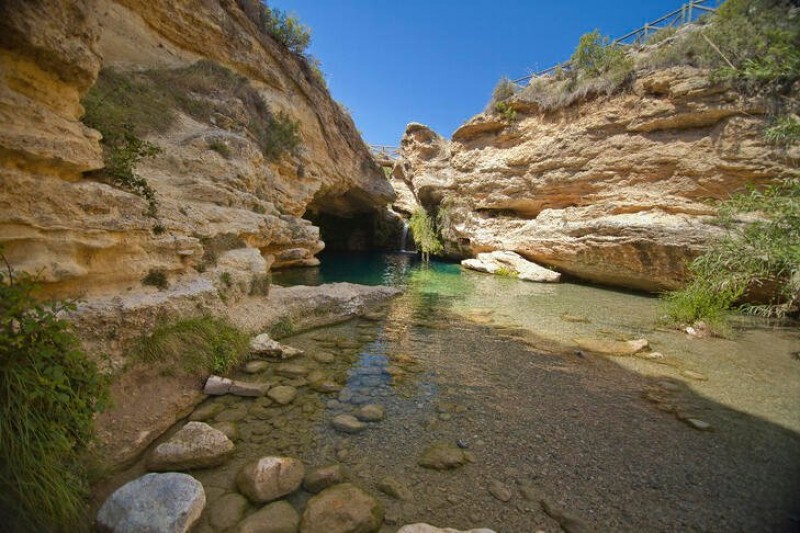
The waterfalls which burst out of a rock face just outside the Bullas are soon to be officially classified as a “Natural Monument”, although locals who have enjoy a dip in the freezing pond during the summer will be quick to tell you that they have always deserved that accolade.
In geological terms the interest of the location lies in the erosive processes in sandstone and limestone, and this erosion has created a kind of vaulted bowl into which the water cascades from a height of over 3 metres.
Access is limited in summer due to the popularity of the Salto del Usero among swimmers, and all year round the area remains a magnet for walkers enjoying the surrounding countryside.
Cañón de Almadenes
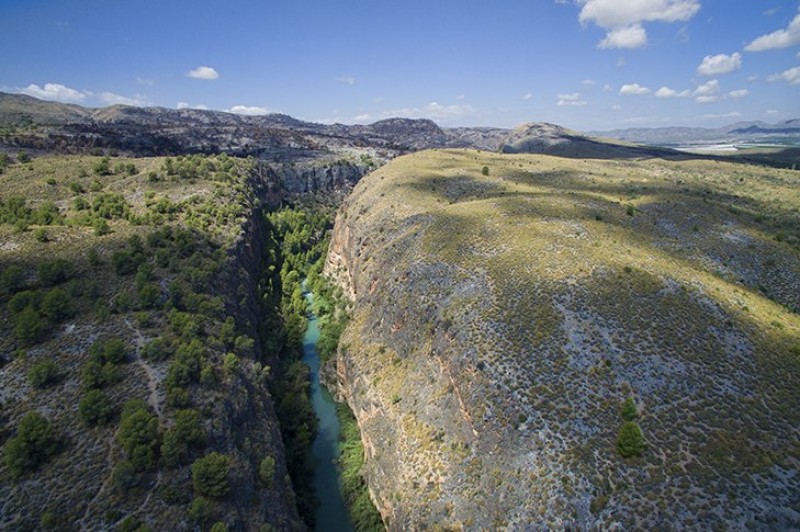
The Almadenes canyon is a unique beauty spot between Calasparra and Cieza, where the River Segura has carved out a deep, narrow gorge. Among the rich ecosystem are verdant trees such as elms, ashes and willows, and the wildlife calling the area home include eagle owls, short-toed snake eagles and even otters.
Visitors to Almadenes are not limited to those seeking fantastic views: the canyon is hugely popular among walkers, rafters and canoeists, and with large inflatable raft trips also on offer this is a perfect destination for lovers of nature and adventure!
On top of all this, the canyon also contains prehistoric rock paintings in the Cueva de los Mingotes, with guided tours offered by the Calasparra tourist office. It is important to remember that visiting here is best in small groups, and that binoculars and a camera are absolutely essential!
Monte Arabí
Monte Arabí in Yecla, in the north of the Region of Murcia, boasts a remarkable landscape, sculpted by the forces of erosion and featuring sinkholes, caves, overhangs and pierced rock surfaces which look like honeycombs.
As well as being of interest to geologists, Monte Arabí also contains prehistoric art treasures, including rock paintings which have been declared items of World Heritage by Unesco. Don’t¡ miss out on it!
Barrancos de Gebas

Visitors to the Barrancos de Gebas often describe them as being like visiting the moon without leaving Earth, in an area of unique beauty between Alhama de Murcia and Librilla with the deep blue of the Algeciras reservoir as a backdrop. This protected area is one of the finest examples of true “badlands” in the Region of Murcia, and its colours, contrasts and eerie shapes simply take the breath away.
Those visiting the surreal dips and furrows are easily forgiven for comparing the experience to a trip to an otherworldly location, and this is definitely one of those beauty spots in Murcia which falls into the “must see” category.
Mirador Alto de Bayna
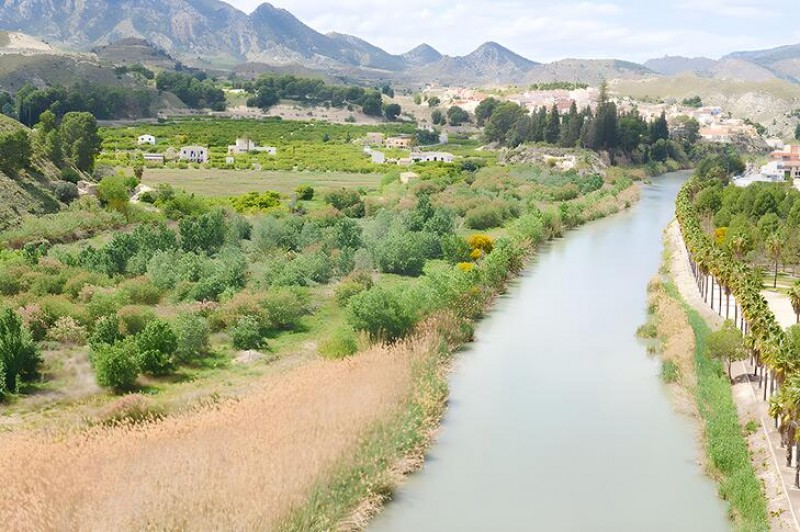
The Alto de Bayna viewing point in the municipality of Blanca, in northern Murcia, is almost like a floating platform which offers spectacular views over the Azud reservoir, the River Segura and Blanca itself.
A visit here is best combined with a walk along the riverbank and the beautiful countryside which flanks the Segura.
Estrecho de Bolvonegro
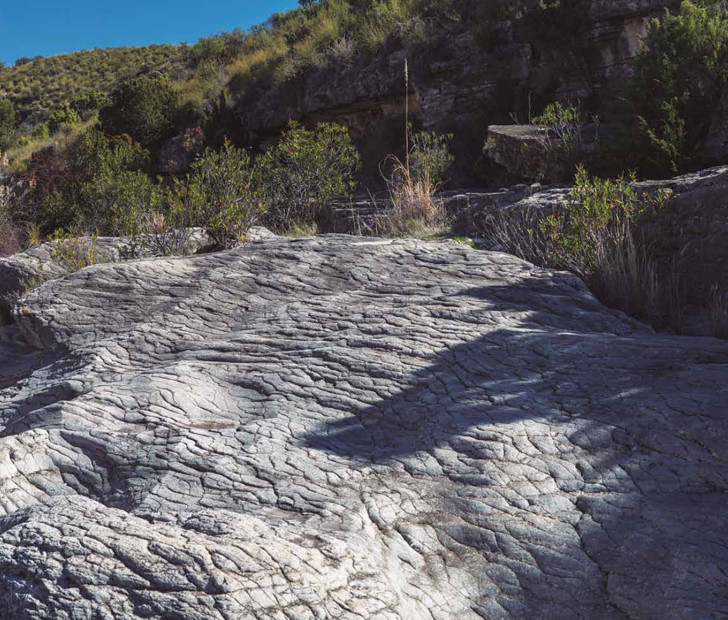
The gorge of Bolvonegro lies at the end of a 6-kilometre path through the Red Natura 2000 area which is home to the Alhárabe and Benamor rivers as they run into the River Moratalla.
This protected area is of great interest to naturalists, geologists and archaeologists, and as walkers follow the path they come to the jewel in the crown. This is the gorge of Bolvonegro (a name which derives from “Gorgonegro”, or black throat). Here the dark rock walls alongside the river are the result of the timeless conflict between water and rock.
The Regional Park of Calblanque
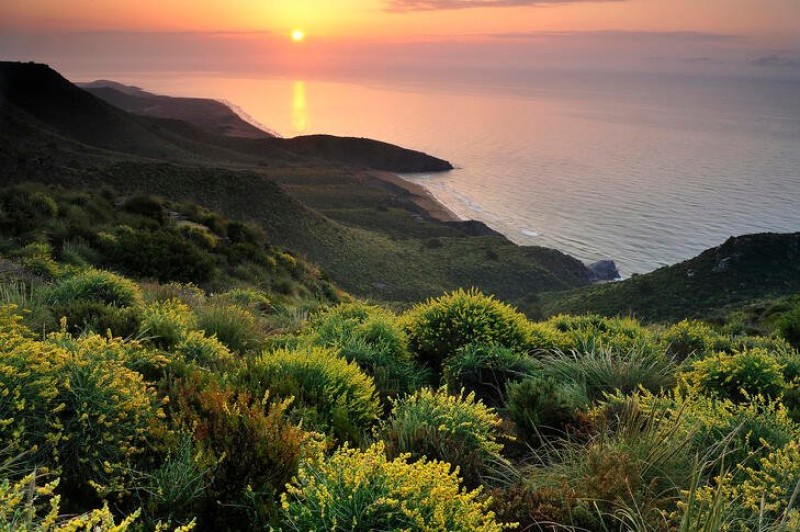
Much of the Mediterranean coastline between Cabo de Palos and Portmán, in the east of the municipality of Cartagena, is occupied by the Regional Park of Calblanque, which is notable for the wide diversity of its ecosystems and its overwhelming natural beauty.
This is an ideal area for walkers and cyclists, and includes unspoilt beaches of fine golden sand. The sunsets here are widely acknowledged to be among the most spectacular in the Costa Cálida, and match the enchanting contrasts between see, sky and the natural vegetation.
Las Fuentes del Marqués in Caravaca de la Cruz
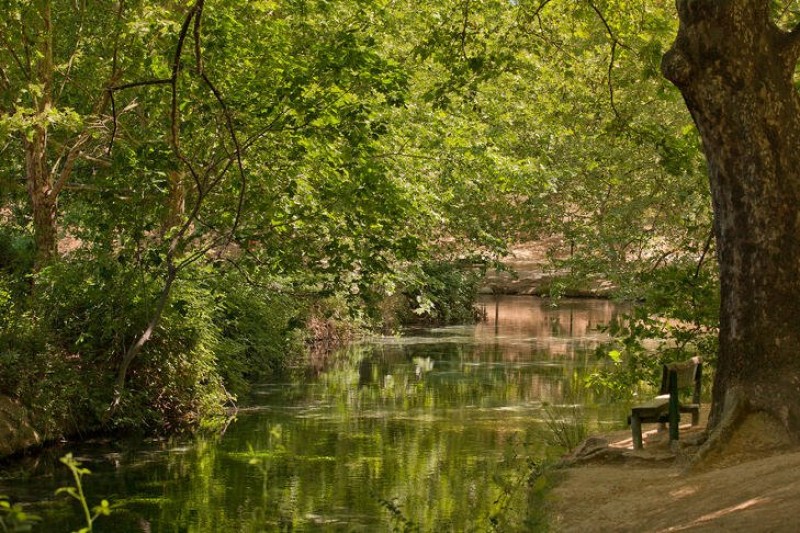
Just outside the city of Caravaca is one of the most attractive beauty spots in the whole of the Region of Murcia, a green oasis in the dry surrounding landscape which is known as Las Fuentes del Marqués.
Blessed with a unique microclimate and natural springs, it is home to a wide range of plant and animal species, and becomes a riot of colour with the changing of the seasons in spring and autumn.
The wind-eroded rocks or “gredas” of Bolnuevo
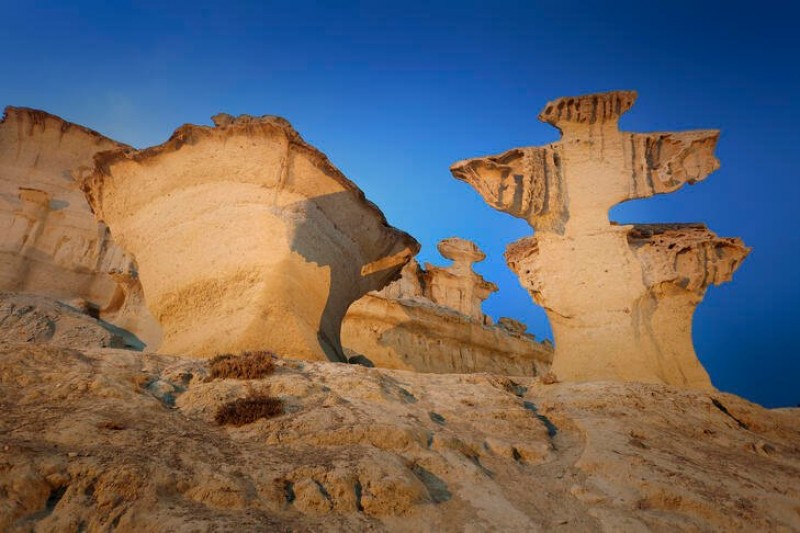
The impressive rock formations of Bolnuevo are located just behind the long sandy beach and are sometimes referred to by locals as an “enchanted city”. This extraordinary formation has been declared a “Natural Monument” of the Region of Murcia, and is a favourite venue for wedding photographs!
Isla del Fraile
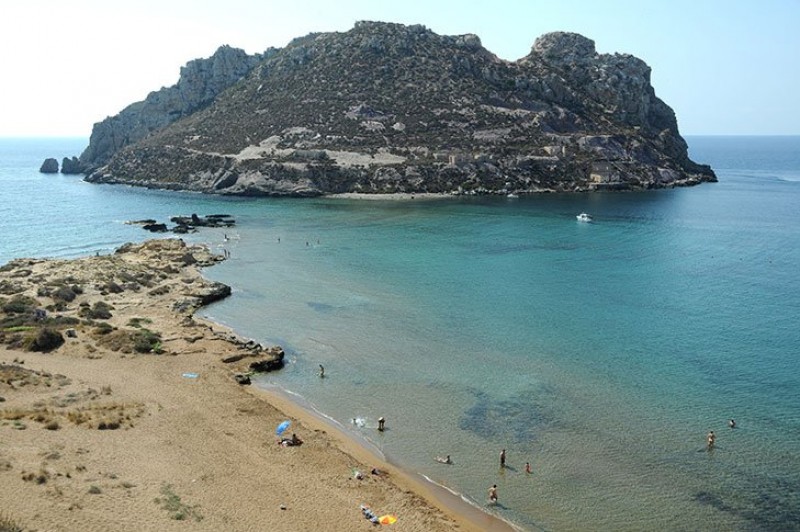
The Isla del Fraile is little island is just off the beach of Playa Amarilla in Águilas, and as well as being a spectacular sight it is also home to important archaeological remains. It was inhabited in Roman times and there are also vestiges of buildings from the early 20th century, but now it is home only to sea birds!
These are just a few of the spectacular landscapes and natural features in the Costa Cálida – there are hundreds more just waiting for you to discover, and once you start exploring you will doubtless have your own favourites!
Images courtesy of the Instituto de Turismo de la Región de Murcia






